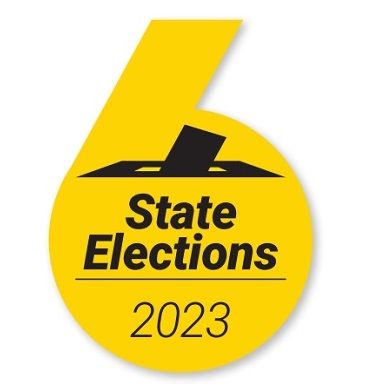PETALING JAYA: Every vote counts, they say. That cannot be more true than in the coming six state elections, with all parties facing all sorts of pressure.
There is said to be a “green wave” that could rock the established order, but then there is also the power of incumbency. To top that off, the Undi18 cohort can also bring shocking change.
More importantly, an expected lower voter turnout could be very decisive.
The forecast for low voter turnout is based on the declining trend during the last three general elections.
During GE13 in 2013, the turnout was 84.6%; in GE14 in 2018, it was 83.32%; and in GE15 last November, it fell by almost 10 percentage points to 73.89%.
As such, contesting parties will be vying for each vote, particularly those from young voters, said International Islamic University Malaysia’s assistant Prof Dr Tunku Mohar Tunku Mohd Mokhtar.
“Young voters are influenced by social media and not by ideology or the policies of political parties or candidates.
“They will support parties they can relate to through social media.
“Parties that offer the most attractive proposition through social media will get the youth’s votes,” he said yesterday.
He said the turnout of young voters was likely to be the same as that of any other group.
“The age factor does not necessarily drive them to go out to vote,” he said, adding that Perikatan Nasional relied heavily on TikTok to woo young voters during GE15.
Almost 10 million voters are eligible to cast their ballots in the coming six state polls in Selangor, Penang, Negri Sembilan, Kedah, Kelantan and Terengganu.
Polling is expected to be held in early August.
Dr Azmi Hassan, a senior fellow at Nusantara Academy for Strategic Research, expects the average voter turnout to be about 75%.
“Although the state polls are seen as a referendum for the unity government, voters understand that whatever the results of the state polls are, they will not affect the status quo of the government at the federal level.
“Also, there will be outstation voters who may not want to make the sacrifice and travel home to vote,” he added.
Azmi agreed that young voters would play a crucial role, particularly in the Pakatan Harapan-held states of Penang, Selangor and Negri Sembilan.
He cited Selangor as an example, which has 1.3 million new voters.
“Even if there is a low turnout among young voters here, their numbers will be critical,” he added.
Universiti Sains Malaysia’s political science expert Prof Dr Sivamurugan Pandian said state elections generally have a lower voter turnout compared to the general election.
“I estimate the turnout to be between 60% and 70%, higher than during the state elections in 2021 and 2022 in Melaka (65%), Johor (55%) and Sarawak (60%),” he said.
He added that the turnout of voters would depend on the effectiveness of a party’s election machinery in getting voters to return home and in wooing first-time voters.
“Undi18 and automatically registered voters will play a prominent role this time around.
“The candidate and party that manage to garner more votes from this vote bank will likely win because young voters are a major deciding factor.
Another political scientist, Dr Azmil Mohd Tayeb, said he expected the voter turnout to be about 65%.
He cited travel and time as major hindrances for outstation voters who had already gone home to vote during GE15.
“Out-of-state voters might not be as motivated to vote because local issues may not be relevant to them.
“Also, some may not vote in states where one party dominates, like in Kelantan, for example, where there is no real competition,” he said.
He, too, felt that with a low voter turnout and competition that is evenly matched, every vote would count.






